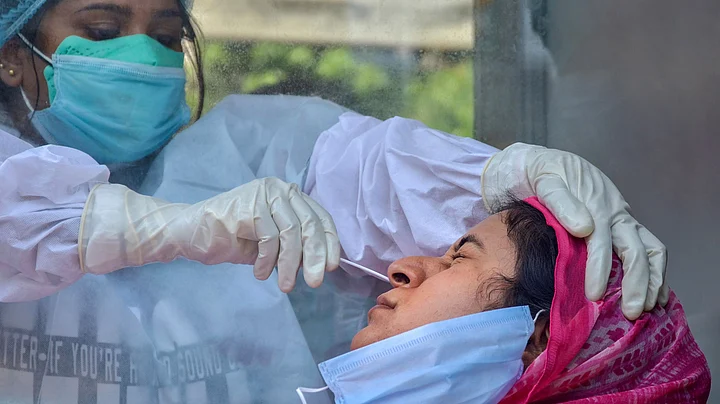Coronaviruses are a group of viruses that causes infections to your nose, upper throat and sinuses. Usually, coronaviruses are not lethal.
In late December 2019, the World Health Organisation recognised a new form of coronavirus named SARS-CoV2. The sudden outbreak in Wuhan, China had its grasp all around the globe quickly.
Speaking about COVID-19, it is a disease caused by the novel Coronavirus that is known to induce a respiratory tract infection. It can attack both the upper respiratory system (consisting of the sinus, nose and throat) and the lower respiratory system (consisting of the windpipe and lungs). The infections in this context range from mild to life-threatening.It spreads just as the other coronaviruses do, mainly through personal contact
Things to Keep in Mind While Going for a COVID-19 Test
- Look out for symptoms: Observe your symptoms and compare them with the ones that are linked with COVID-19. If you have similar symptoms, then you should definitely go for a Coronavirus test.
- Contact a diagnostic Centre/COVID Lab: Before you go for the test, enquire from the diagnostic centre about everything that is important for you to know before your visit. Always choose the testing method that gives 100 % accurate results.
- Safety First: Look for a diagnostic centre that is specifically designed for COVID-19 collection, which has a separate area for sample collection because you never know who is carrying the virus, or who could get infected because of you.
- Social distancing: You don’t know if you are carrying the virus or not before the results come out. So, it is better to maintain a distance from everyone and take the necessary precautions before going to the diagnostic centre for the test.
Types of Sample Collections
- A nasopharyngeal specimen is one, collected by swabbing in the nose of the patient.
- Whereas, an oropharyngeal specimen is collected by swabbing the throat of the patient.
If the test being conducted is not instant the swabs should be placed in a solution for transportation to the lab to avoid contamination of the specimen.
The specimen is then evaluated and studied at the lab for a positive or negative result.
If the test returns as positive, it means you have been infected with the virus. You could have either come in close contact with a person who was positive and carrying the virus at the time. It could also have spread when a sick person coughs or sneezes, as the droplets can travel at least six feet in distance. If you inhale or swallow the droplets, the virus can get into your body.
You can also get the virus from touching a surface or object where the virus is and then touching your mouth, nose, or possibly your eyes. People tend to get scared if they are positive but this should not be the case. Try and not overthink about the situation.
It’s important to remember that most cases are mild and get resolved within a couple of weeks. Learn the facts and guidelines regarding the virus to help yourself and others keep safe.
Between your doctor and health care authorities, all the necessary information will be passed on to you to prevent the virus from spreading further.
What if You Test Positive
- Notify the people around you: Staying at home will help to control the spread of the new coronavirus (SARS-CoV-2) to your friends, relatives and your wider community. You should not have any visitors in your home during your isolation period. Try to stay in a separate room away from other people in your home. Use a separate bathroom if you can.
- Do keep in touch with your relatives, friends and colleagues over the phone, internet or by using social media. It helps you to keep a check on the people you love and divert your mind for a bit.
- Stay home: Even if you have mild symptoms like a headache and runny nose, stay indoors until you’re better.
- Other people who have previously been in close contact with you should also stay in self-isolation, or even get tested if symptoms arise.
- If the symptoms worsen make sure to call your doctor, for example, difficulty in breathing. You need to get medical attention as soon as possible. You can also call the local helpline number set for managing the COVID-19 situation.
- Always wear a mask if you have been tested positive to stop the virus from spreading.
- Continue to isolate until you have recovered fully.
A gentle reminder, always practice social distancing, wear a mask and also ask the people around to do so. It is us who bear the social responsibility to check the spread of the Novel Coronavirus.

